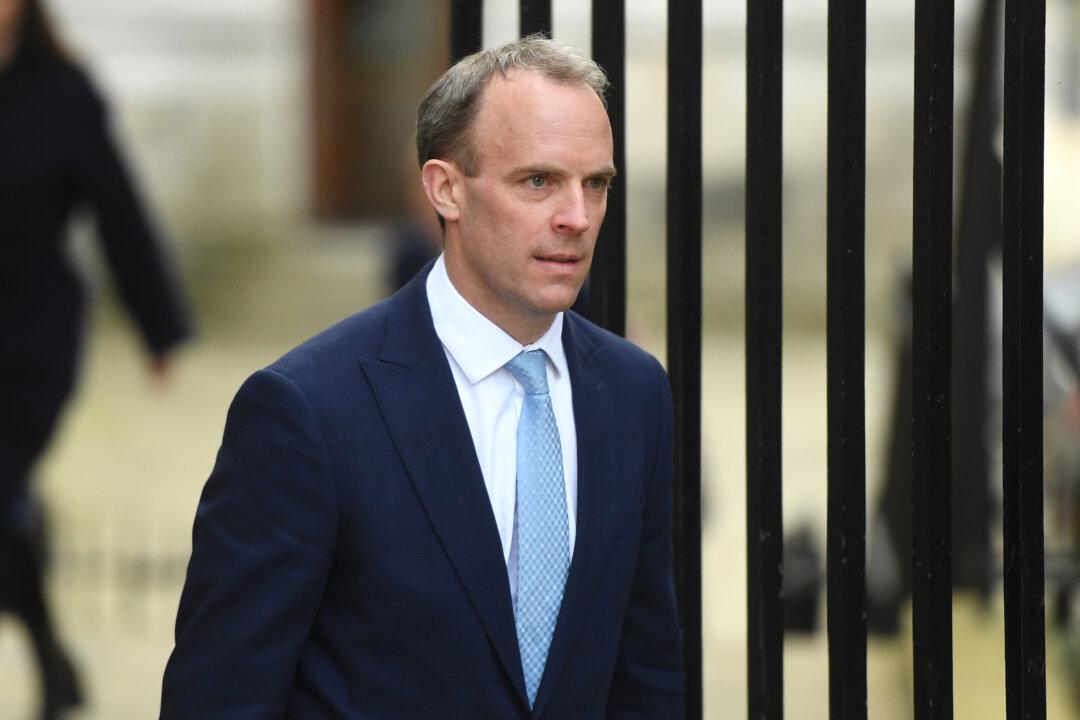British Foreign Secretary Dominic Raab has expressed deep concerns on Wednesday over evidence of Chinese cyberattacks against medical and academic institutions in 11 countries, including the UK.
The U.S. Department of Justice (DOJ) announced on Tuesday that two Chinese hackers had been indicted for stealing millions of dollars worth of trade secrets and other sensitive information, and attempting to steal research on COVID-19, which is caused by the Chinese Communist Party (CCP) virus.





